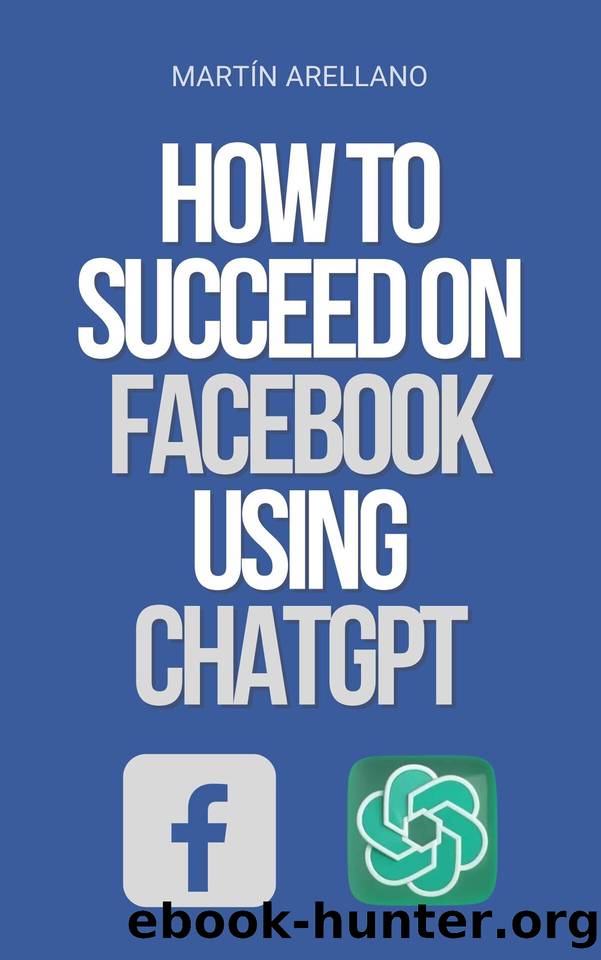How to Succeed on Facebook Using ChatGPT: The Power of ChatGPT: Discover How it Can Transform Your Facebook Strategy by Arellano Martín

Author:Arellano, Martín
Language: eng
Format: epub
Published: 2023-09-20T00:00:00+00:00
Understanding Facebook's algorithms
To achieve a high degree of efficiency on Facebook, it is essential to understand how the algorithms that govern this platform work, especially because they are responsible for determining what content is displayed by users in their news feeds. In this sense, let's dive into the web of Facebook algorithms to unveil how it is possible to get the best out of them with the assistance of ChatGPT.
Facebook's algorithm is a set of instructions and rules that determine how content is distributed and displayed on the platform. It is important to note that this algorithm is constantly changing, adjusting to new variables and trends, which demonstrates the need to always keep updated regarding its modifications.
One of the bases of Facebook's algorithm is content relevance, which is established based on a series of signals including, but not limited to, user interaction (likes, comments, shares), information available in the user's profile and intrinsic details of the shared content (type of content, who posted it, etc.). Therefore, to optimize the reach of publications, it is paramount to encourage interaction and create content that resonates with users' interests and needs.
Timing is another determining factor; more recent content tends to have a higher priority in the news feed. Thus, maintaining a consistent and reasonable frequency of posts can help maintain a noticeable presence in the followers' feed. Of course, this does not mean sacrificing quality for quantity; creating valuable content remains a fundamental premise.
Another vital consideration is the authenticity of the content. Facebook has mechanisms to detect misleading practices or spam, and penalizes this type of content by reducing its reach. So it is highly recommended to maintain an honest and transparent line of communication.
With these aspects in mind, it is clear that understanding and adapting to Facebook's algorithms is not a simple task. This is where ChatGPT can become a valuable ally. For example, it can help create authentic and personalized content that encourages interaction, interpreting the trends and preferences of the target audience to suggest topics or approaches that may be of interest.
In addition, ChatGPT can assist in crafting quick and appropriate responses to user comments, thus encouraging more interaction and creating a sense of community, which is well regarded by Facebook's algorithm.
We cannot forget the importance of properly using the tools that Facebook offers for content creators, such as Facebook Insights, which allows you to obtain a detailed analysis of the performance of your publications and get to know your audience better. With the assistance of ChatGPT, you can make more strategic use of this data to fine-tune your content strategy.
In this context, it is important to remember that Facebook algorithms prioritize content that encourages interactions among users, so strategies such as directly asking the audience their opinion on a given topic, or creating content that encourages sharing, can be effective in increasing the reach of publications.
Despite the complexity of Facebook's algorithm, it is not impossible to understand how it works and take advantage of it. The key is to
Download
This site does not store any files on its server. We only index and link to content provided by other sites. Please contact the content providers to delete copyright contents if any and email us, we'll remove relevant links or contents immediately.
Algorithms of the Intelligent Web by Haralambos Marmanis;Dmitry Babenko(7929)
Hadoop in Practice by Alex Holmes(5707)
Jquery UI in Action : Master the concepts Of Jquery UI: A Step By Step Approach by ANMOL GOYAL(5569)
Life 3.0: Being Human in the Age of Artificial Intelligence by Tegmark Max(4605)
Functional Programming in JavaScript by Mantyla Dan(3783)
Big Data Analysis with Python by Ivan Marin(3563)
The Age of Surveillance Capitalism by Shoshana Zuboff(3512)
Test-Driven Development with Java by Alan Mellor(3425)
Data Augmentation with Python by Duc Haba(3267)
Principles of Data Fabric by Sonia Mezzetta(3076)
Blockchain Basics by Daniel Drescher(2964)
Microservices with Spring Boot 3 and Spring Cloud by Magnus Larsson(2862)
Learn Blender Simulations the Right Way by Stephen Pearson(2824)
The Rosie Effect by Graeme Simsion(2792)
WordPress Plugin Development Cookbook by Yannick Lefebvre(2764)
The Infinite Retina by Robert Scoble Irena Cronin(2703)
Hands-On Machine Learning for Algorithmic Trading by Stefan Jansen(2677)
Machine Learning on Kubernetes by Faisal Masood Ross Brigoli(2660)
Applied Predictive Modeling by Max Kuhn & Kjell Johnson(2562)
